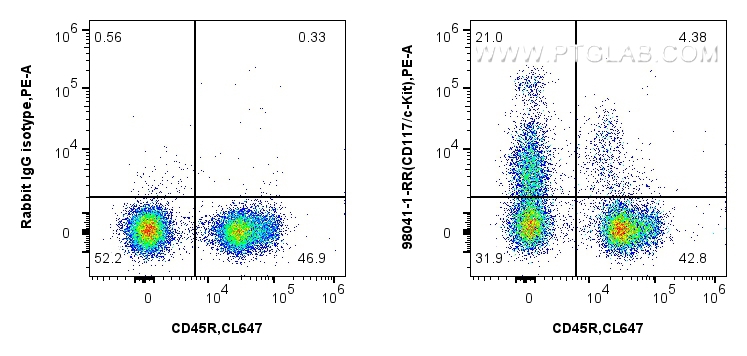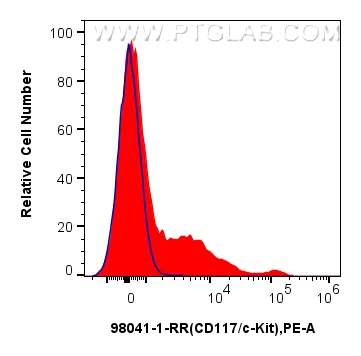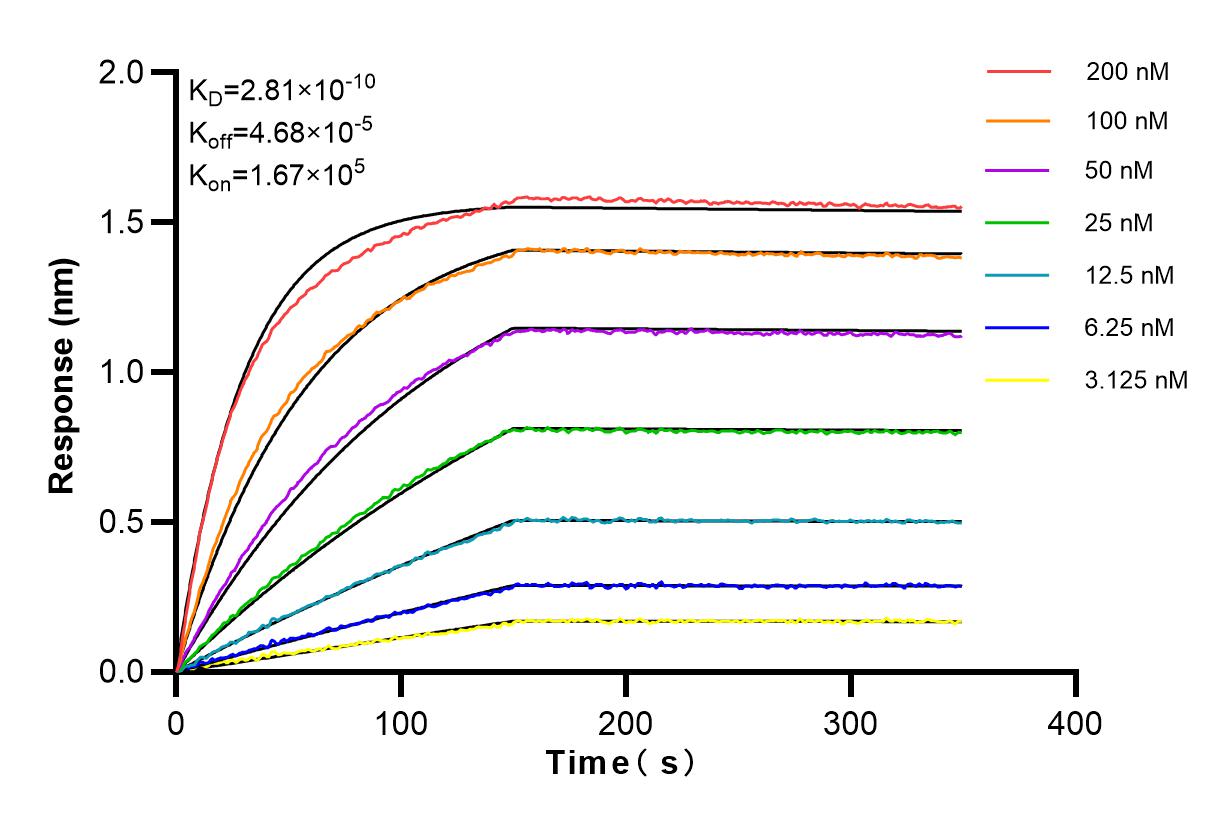验证数据展示
经过测试的应用
| Positive FC detected in | mouse bone marrow cells |
推荐稀释比
| 应用 | 推荐稀释比 |
|---|---|
| Flow Cytometry (FC) | FC : 0.25 ug per 10^6 cells in a 100 µl suspension |
| This reagent has been tested for flow cytometric analysis. It is recommended that this reagent should be titrated in each testing system to obtain optimal results. | |
| Sample-dependent, Check data in validation data gallery. | |
产品信息
98041-1-RR targets CD117/c-Kit in FC applications and shows reactivity with mouse samples.
| 经测试应用 | FC Application Description |
| 经测试反应性 | mouse |
| 免疫原 |
CatNo: Eg0883 Product name: Recombinant Mouse CD117/c-kit protein (His Tag) Source: mammalian cells-derived, pHZ-KIsec-C-6*HIS Tag: C-6*HIS Domain: 25-527 aa of NM_001122733.1 Sequence: SQPSASPGEPSPPSIHPAQSELIVEAGDTLSLTCIDPDFVRWTFKTYFNEMVENKKNEWIQEKAEATRTGTYTCSNSNGLTSSIYVFVRDPAKLFLVGLPLFGKEDSDALVRCPLTDPQVSNYSLIECDGKSLPTDLTFVPNPKAGITIKNVKRAYHRLCVRCAAQRDGTWLHSDKFTLKVRAAIKAIPVVSVPETSHLLKKGDTFTVVCTIKDVSTSVNSMWLKMNPQPQHIAQVKHNSWHRGDFNYERQETLTISSARVDDSGVFMCYANNTFGSANVTTTLKVVEKGFINISPVKNTTVFVTDGENVDLVVEYEAYPKPEHQQWIYMNRTSANKGKDYVKSDNKSNIRYVNQLRLTRLKGTEGGTYTFLVSNSDASASVTFNVYVNTKPEILTYDRLINGMLQCVAEGFPEPTIDWYFCTGAEQRCTTPVSPVDVQVQNVSVSPFGKLVVQSSIDSSVFRHNGTVECKASNDVGKSSAFFNFAFKGNNKEQIQAHTLFTP 种属同源性预测 |
| 宿主/亚型 | Rabbit / IgG |
| 抗体类别 | Recombinant |
| 产品类型 | Antibody |
| 全称 | kit oncogene |
| 别名 | CD117, Kit, 240246C11, c KIT |
| 计算分子量 | 109 kDa |
| GenBank蛋白编号 | NM_001122733.1 |
| 基因名称 | CD117 |
| Gene ID (NCBI) | 16590 |
| RRID | AB_3672188 |
| 偶联类型 | Unconjugated |
| 形式 | Liquid |
| 纯化方式 | Protein A purfication |
| UNIPROT ID | P05532-1 |
| 储存缓冲液 | PBS with 0.09% sodium azide, pH 7.3. |
| 储存条件 | Store at 2-8°C. Stable for one year after shipment. |
背景介绍
CD117, also known as c-Kit and SCFR, is a transmembrane protein with tyrosine kinase activity encoded by the oncogene c-kit (PMID: 2448137). It is a member of the type III receptor tyrosine kinase family, which also includes CSF-1R, PDGFRβ, PDGFRα, and FLT3 (PMID: 29518044). CD117 is expressed on hematopoietic stem cells and progenitor cells, mast cells, and is also found in a wide range of non-haemopoietic cell types (including melanocytes, germ cells, astrocytes, renal tubules, breast glandular epithelial cells, sweat glands, and interstitial cells of Cajal) (PMID: 10582338; 23073628). CD117 plays an important role in early haemopoiesis. It is also involved in pigmentation, fertility, gut movement, and some aspects of the nervous system (PMID: 23073628).
实验方案
| Product Specific Protocols | |
|---|---|
| FC protocol for CD117/c-Kit antibody 98041-1-RR | Download protocol |
| Standard Protocols | |
|---|---|
| Click here to view our Standard Protocols |




